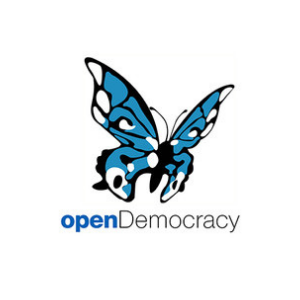Rio de Janeiro´s violence: a tale of two cities
July, 2017
Rio de Janeiro is not one, but many cities. There´s the one that most people have heard about – made up of posh beach facing neighbourhoods such as Copacabana, Ipanema and Leblon. Then there´s the city that gets less attention which includes vast informal settlements called favelas. Rio is one of the world´s most unequal urban agglomerations, with multi-million dollar apartments cheek by jowl with excruciating poverty. Extreme levels of urban fragmentation and segregation are partly responsible for fueling blistering levels of violent crime and victimization.
Yet not all Brazilians experience violence equally. To be sure, 80 percent of Rio de Janeiro´s residents believe they are at risk of being murdered in the next twelve months. But a closer inspection of the statistics suggests that roughly half of all homicides occur in just two percent of the city´s street blocks. And these blocks are overwhelmingly located in areas of concentrated disadvantage. Residents from these areas are routinely subjected to aggressive police sweeps and daily fighting between drug-trafficking factions.
Nearly half of all Brazil´s roughly 60,000 reported homicides are due to drug-related violence.
I recently came face to face with the city’s darker side. On a clear evening a few months back, I was accosted by two young men. They had just descended from one of the city´s favelas that abuts the iconic Copacabana neighborhood called Pavão-Pavãozinho. Upon seeing me alone, they asked me a straightforward question: “What’s more important? Your phone or your life?”
“My life,” I answered. I continued, “But what are your names?”
In asking their names, I discovered an entirely unexpected bridge to the two worlds of Rio de Janeiro. Joao and Marcelo, the two boys seeking to liberate me of my phone, were stunned. I asked them another question: “why are you stealing from me?” The mood changed. Joao knelt down and rubbed sand into my feet, explaining that this what life on the street feels like. I asked whether we could find a better outcome to our situation. Smiling, Joao suggested I buy them dinner. He hastily added, “don´t worry, we were play-acting”.
Rather than waste our money at the expensive beachfront restaurants in Copacabana, Marcelo suggested we find a more affordable option. As we walked, Joao asked strangers for directions, revealing that like me, he was a foreigner in Rio de Janeiro´s south zone. Hours later, $32 dollars lighter, and my belongings and body intact, I walked back out on the moon-lit street. Joao and Marcelo had taught me some remarkable lessons about their lives, and my own.
“Why steal?” I had asked. Marcelo explained to me that “like you, I value my life.” Marcelo said he stole because he could not support his family by selling trinkets on the beach. Unlike many of his peers, he had managed not to get involved in selling drugs, even though it was a vastly more profitable option. He explained that every day he walked an impossible line between two punitive laws — the law of the street and the law of the state. He is right to be afraid. According to the Igarapé Institute, a think tank, nearly half of all Brazil´s roughly 60,000 reported homicides are due to drug-related violence.
In situations of extreme inequality and despair, I have seen men and women modeling habits such as humility, compassion, integrity, and dialogue.
Marcelo’s fear of being killed by police is only exceeded by his fear of Brazil’s notorious prisons. Already bulging at 160 percent capacity, Brazil’s prisons are effectively run by criminal factions. Gang leaders literally call the shots, including the ordering of prison massacres in early 2017 that left over 130 dead — many decapitated, dismembered, and disemboweled. Marcelo’s rejection of drug-dealing on personal safety grounds makes further sense given that drug trafficking charges are the country’s leading cause of incarceration.
Of course, even knowing these facts about Joao and Marcelo´s life doesn’t make getting robbed any less unsettling. Too often what starts as a robbery devolves into a violent tragedy. Yet when I looked into their eyes I saw the faces of many other people I´ve come to know. While I was scared and frustrated when they threatened me, these feelings were tempered by a desire to connect. My mother always encouraged me to find the sacred in the other. Working in a detention facility in Philadelphia, I learned how.
On the streets of Rio de Janeiro and in the prisons of Philadelphia I witnessed the most exceptional behavior in terrible circumstances. In situations of extreme inequality and despair, I have seen men and women modeling habits such as humility, compassion, integrity, and dialogue, all of which are preconditions for personal and societal transformation. These kinds of behaviors, available to all of us, are critical for confronting personal and community suffering. We all must listen. We all must learn how. We can start by learning each others names.



